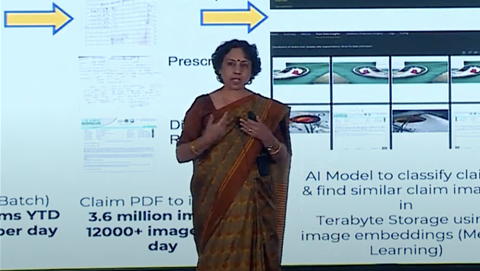Unfair licensing practices of global cloud software and infrastructure providers are making it more difficult for businesses to switch to cloud infrastructure provided by independent service providers, according to market analysts.
Some legacy cloud-based software providers have bundled the use of their dominant software systems with their cloud infrastructure, have limited customer choice to only a few selected cloud providers or charge extra fees for the use of their software with third-party cloud providers.
This discourages customers from using services from more than one cloud provider or switching to an alternative provider.
Media reports indicate that the US and UK may soon introduce new policy measures to prevent such restrictive practices.
The European Centre for Law and Economics of ESSEC Business School's Co-Director, Professor Frederic Jenny, told iTnews Asia that these practices do not specifically impact just Europe but are a global problem.
"We did a study into European firms, but my understanding is that the same kind of practices take place in different parts of the world," he added.
Based on conversations with large software users from across Europe, and a detailed analysis of price discrimination, Professor Jenny in his new research report said significant unfair, additional costs are being levied on customers, making it difficult to switch to independent cloud providers even if they wish to.
The US Federal Trade Commission in a recent meeting earlier this week, presented notable findings on cloud computing providers, focussing on the threat to customers posed by unfair licensing practices.
FTC's deputy assistant director, Krisha Cerili said "unfair practices" ultimately stifle innovation and competition in the cloud at the expense of customers.
The agency also identified how licensing rules also exposed customers to cybersecurity threats and vulnerabilities by limiting interoperability between security solutions.
The UK's Competition and Markets Authority (CMA) is also drafting remedies to prevent big players restricting customers from using multi-clouds.
It is currently investigating the domestic cloud infrastructure industry following a recommendation from the UK's communications services regulator Ofcom. The probe will focus on three key areas including egress fees, interoperability, and software licensing in the cloud.
Unfair practices
The research by Professor Jenny's team, conducted since October 2022, unveiled many unfair software licensing practices that could limit the choice and increase costs for customers looking to move productivity IT systems into the cloud.
It shows how legacy software companies including Microsoft, Oracle and SAP could use tying, bundling and discriminatory pricing to direct customers to their own cloud infrastructure.
For instance, customers using Microsoft’s SQL Server in an independent cloud will have to pay an additional 28 percent premium, or tax, on the software licence.
"These costs are driven by changes to Bring Your Own License (BYOL) terms for just two products, and just in the private sector," he added.
Another example cited was Oracle’s “Matching Service Levels” policy, in which it implicitly ties its licences to maintenance contracts and prohibits end users from mixing licences with active support maintenance with those without one.
Through such actions, Oracle not only compels users to source the entirety of the maintenance contracts internally but also increases the switching cost for customers seeking to outsource a part or the whole of their maintenance contract with competitors, Professor Jenny said.
Other restrictive software licensing practices include technical barriers to interoperability and portability for customers to reconfigure their data and applications.
Professor Jenny said authorities should investigate these practices to restore competitive balance in the market. "Customers of cloud infrastructure services should be guaranteed to rely on the Digital Markets Act to stop abusive practices of the very large incumbent software providers," he added.
Earlier this June, Google raised similar concerns to FTC over Microsoft “locking clients” to gain control over the cloud-computing market. It said such control represents a significant national and cybersecurity risk.
However, the Korea Fair Trade Commission imposed a fine of US$32 million (S$43 million) on Google for pressuring domestic game publishers to launch games exclusively through Google Play.








